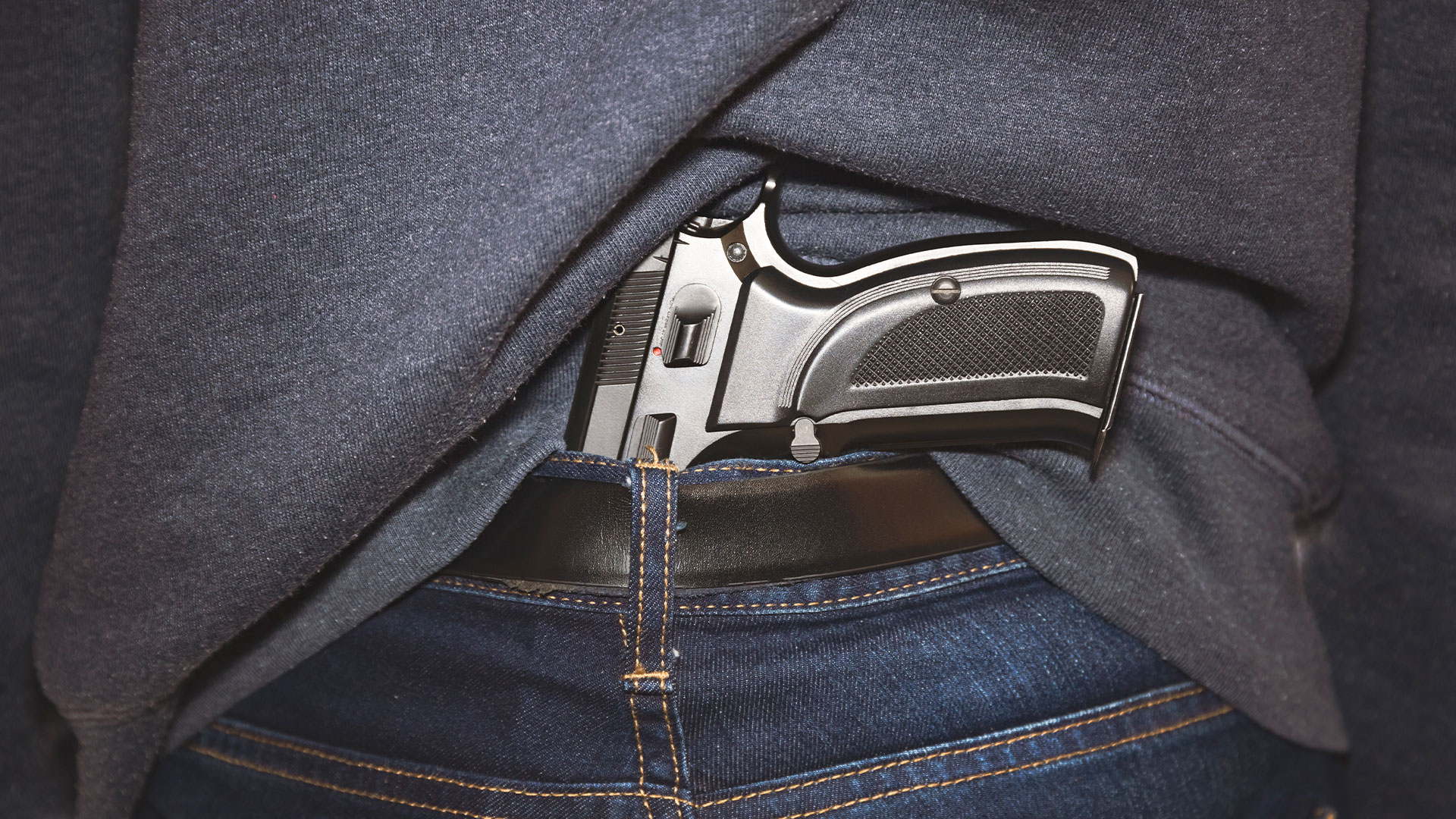Are Your Rights at Risk? Fighting Back for Michigan Gun Owners
The law regarding whether those who have expunged felonies or domestic violence convictions retain the lawful right to carry, possess, and purchase firearms and ammunition, is as confusing as ever. Recently, the state performed a comprehensive overhaul of expungements, called Michigan’s Clean Slate Law, which has been a significant achievement with those with felony convictions. But while many are now eligible for employment when before they were not, questions remain about whether they can possess, purchase, and concealed carry a firearm or ammunition.
Michigan’s Clean Slate Expungement Law
In April of 2021, Michigan significantly expanded the eligibility to set aside, or expunge, criminal convictions. Before, only one felony or misdemeanor was eligible for expungement. Michigan’s Clean Slate Law now permits up to three felonies to be expunged and an unlimited number of misdemeanors.
Multiple felony convictions that occurred during the same 24-hour period now count as one felony (One Bad Night Rule). However, this rule does not apply to assaultive crimes or those that carry a potential jail sentence more than 10 years in prison. Also, many traffic offenses are eligible including a first offense of drunk driving. Any convictions that are set aside shall be non-public and removed from a person’s ICHAT.
We are thrilled about these changes to Michigan’s Clean Slate law, however, there remain a lot of questions of what happens regarding firearms rights, and automatic expungements.
Automatic Expungement and Michigan’s Clean Slate
Michigan’s Clean Slate Law now authorizes certain convictions to be automatically expunged. Misdemeanor convictions where the maximum penalty is less than 93 days (for example, disorderly conduct) are automatically expunged after seven years from the date of the sentence. Felony convictions will be automatically set aside after 10 years from the sentence date or date of release from imprisonment, whichever is later.
There cannot be any convictions during the eligibility period. Automatic expungement is not available for crimes involving dishonesty, assaultive crimes or offenses punishable by more than 10 years.
Expungements that are automatically set aside are subject to reinstatement if it was proven that a person ordered to pay restoration was not making a good faith effort to pay it as ordered. Convictions that have been automatically set aside can also be used to charge a second or subsequent offense or can be used to enhance penalties for sentencing felons. The potential for reinstatement and use as a predicate offense, is the subject of federal firearm prohibition, as explained below.
Michigan’s Domestic Violence Laws
Domestic violence means an assault upon a person who is the person’s spouse, roommate, or have a child in common with.
Persons charged with domestic violence for the first time will be given the opportunity to plead guilty, under advisement. Commonly known as 749.4a, the case will immediately become a non-public record and stays that way until there is a successful completion of probation.
If successful, a conviction will not enter. But like automatic expungement, the case remains eligible to use as a second or subsequent offense. This, again, is important for federal considerations.
The law states that:
“Upon fulfillment of the terms and conditions, the court shall discharge the person and dismiss the proceedings against the person. Discharge and dismissal under this section must be without adjudication of guilt and is not a conviction for purposes of this section or for purposes of disqualifications or disabilities imposed by law upon conviction of a crime, but it is a prior conviction in a prosecution under sections 81(4) and (5) and 81a(3) of the Michigan penal code.” (MCL 769.4a)
Michigan’s New Domestic Violence Firearm Prohibition Law
The Michigan Legislature recently enacted a law that extends the ineligibility for firearm possession to eight years for those convicted of domestic violence crimes. It had previously been three years.
This law provides more parity to the complete federal prohibition of a firearm by a person convicted of DV. Because most firearm prosecutions occur in state court, this significant change to state law is thought to have a greater impact. It also expanded the definition of a domestic violence related offense to include offenses like stalking, vulnerable adult abuse, and criminal sexual conduct in the fourth degree.

Michigan Law Regarding Permit to Carry a Concealed Pistol (CPL)
Michigan permits a qualifying applicant to obtain a permit to carry a concealed pistol. A concealed pistol is opposed to a firearm that is carried openly and in plain view, which does not require a permit. To qualify for a CPL, a person must apply in the county in which they reside and not be subjected to any of the following ed conviction. Other offenses, like a dui conviction may not have been received within three years before the application.
Other exclusions to consider remain. They have to pass an FBI background check which means the applicant cannot be a prohibited person pursuant to federal law. Federal law prohibits persons who are addicted to controlled substances or those who suffer from any mental illness from possessing a firearm. But, if there is no prohibition, the county must grant the license.
Federal Law Prohibiting Person’s from Possessing Firearms under Michigan’s Clean Slate
Federal law prohibits certain people from possessing a firearm. For example, those with any felony conviction, misdemeanor domestic violence conviction or mental health illness. Federal law also expressly permits an expungement to restore the federal firearm prohibition.
Thousands of people who have had their records expunged for both felonies and domestic violence convictions have successfully been able to pass federal background checks and purchase and possess firearms. They have also been issued CPL permits.
That is, until recently. The Department of Justice has evidently changed their stance on whether Michigan’s Clean Slate law permits an expungement to restore their firearms rights. Within the last several months, in the second half of 2023, the ATF has been knocking on people’s doors and seizing lawfully purchased firearms.
They are now saying that Michigan’s expungement law does not fully expunge a person’s record and therefore does not qualify to restore their federal firearm rights. Of course, this comes as a complete shock and cause for worry to those who believed they have possessed these weapons legally.
Federal Lawsuit Against the Department of Justice and ATF
In late December of 2023, the Law Office of Barton Morris filed a federal lawsuit against the Department of Justice seeking Declaratory Action that their recent firearm seizures are unlawful and unconstitutional. We will be litigating this case in 2024 with the hope to reinstate the effectiveness of Michigan’s Clean Slate laws and restore the rights of thousands of people who had the benefit of a felony or domestic violence expungement.


Categories
Best Michigan Criminal Defense Lawyer
President of the Michigan Association of OWI Attorneys Lead Award-Winning Team
What Sets The Law Offices of Barton Morris Apart?
Over Two Decades of Legal Experience with Michigan DUI Laws and Other Practice Areas.
We’ll Tackle Even The Most Challenging Cases and Refuse To Back Down.
We Have a Successful Track-Record Obtaining Favorable Outcomes For Our Clients.
Our Seasoned Trial Lawyers Aren’t Afraid To Go To Court & Fight For Your Rights.
Phone Number:
(248) 712-1156
© The Law Offices of Barton Morris. All rights reserved.

